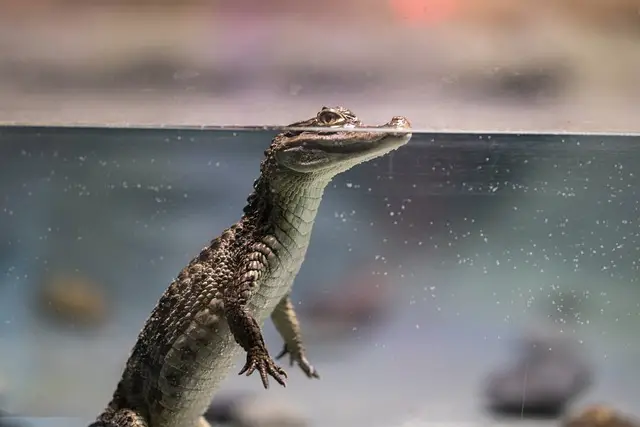As reptile owners, we want to ensure that our pets are safe and healthy, and one of the common questions is whether paint fumes can harm reptiles. In addition, many reptile owners may want to repaint their enclosure or alter some parts, so understanding the potential risks is essential. Let’s examine what the research says about this topic and what you need to know when using paint around your reptile.
Are paint fumes bad for reptiles?
Reptiles are known for their diverse environments and habitats, so you might wonder if paint fumes could harm them.
Unfortunately, the answer is yes; studies point to paints containing volatile organic compounds (VOCs) as damaging to the respiratory systems of certain reptiles.
These VOCs can cause health impacts ranging from eye inflammation to adverse effects on the internal organs of reptiles that come into contact with the fumes.
When painting inside an enclosure where a reptile resides, ensuring proper ventilation and safety precautions is of utmost importance.
Allowing adequate time for the area to air out before introducing your reptile is also essential, as even low levels of exposure over long periods have been linked to health issues in study subjects.
The Impact of Paint Fumes on Reptiles
Reptiles are highly susceptible to paint fumes and other airborne toxins, as their thin skin is easily permeable.
Reptiles can suffer severe illness or even death when exposed to these particles.
It is, therefore, essential to ensure any area where reptiles are likely to be present is sufficiently ventilated before beginning a painting project.
If ventilation is not available, using low-VOC paints and regularly changing air filters can reduce the impact of paint fumes on reptiles.
Additionally, moving the reptile to a safe space with adequate fresh air circulation during and after a painting project will reduce the risk of adverse health effects caused by paint fumes.
Fortunately, reptiles are much less sensitive to VOCs than humans due to their lower metabolic rate.
However, their smaller size means that their airways may be more exposed than ours, which could increase their risk of exposure.
To make sure your reptile stays safe during painting projects, there are some steps you can take to reduce their exposure as much as possible.
Steps You Can Take To Reduce Exposure
The most important thing you can do is to ventilate your room well before beginning any painting project around your reptile’s enclosure.
Open windows and doors to create good air circulation throughout the area.
This will help disperse the fumes quickly and reduce the time your reptile is exposed to them.
You should also avoid using harsh cleaners or solvents that can release additional fumes into the air that could harm both yourself and your pet reptile.
Types of paint that are harmful to reptiles
Reptiles can be sensitive to certain types of paint and should always be kept away from them.
When inhaled, lead-based paints contain hazardous toxins that may cause irritation and respiratory issues.
Oil-based paints might also negatively impact reptiles if they ingest a small amount, as they are filled with toxic chemicals and solvents.
Latex paints contain fewer toxins and offer some safety, but high concentrations of latex can still be toxic to reptiles.
All in all, avoiding using any paint around your reptile is best.
.
Conclusion
In conclusion, paint fumes can be dangerous for reptiles if exposed to too much of them over a long period. To protect your pet from potential harm, ensure you ventilate your room well before beginning any painting project around their enclosure and avoid using harsh cleaners or solvents.
By taking these precautions, you will significantly reduce the number of paint fumes in the air which will keep you and your beloved pet safe from harm.




